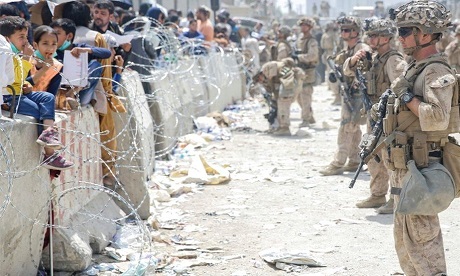Increasing the refugee intake is one way the Australian Government could help with the humanitarian crisis unfolding in Afghanistan, says Archbishop Mark Coleridge.
The Australian Catholic Bishops Conference president says the government should provide at least 20,000 humanitarian places for refugees from Afghanistan in the wake of the current Taliban takeover.
In a letter to Australian Prime Minister Scott Morrison, Coleridge points out the “outpouring of concern for the people of Afghanistan” since the Afghan government collapsed and the Taliban seized control ten days ago.
Even though Australia has provided 8,000 places for Afghan people for several years, the current need to increase the refugee intake is pressing, Coleridge urges.
He told Morrison that although the additional 3,000 places it is offering “is a substantial commitment,” more are needed.
Based on estimates from key humanitarian organisations and pledges from other countries, Coleridge suggested to Morrison that at least another 17,000 places need to be made available.
Coleridge also promised Morrison help from the Catholic Church in Australia.
“Australia has stepped up before in response to significant humanitarian crises and I urge your government to be generous,” his letter says.
The Catholic agencies “stand ready to assist your government with the resettlement of refugees as an expression of our great concern for the people of Afghanistan.”
Coleridge’s letter emphasises the very real danger people in Afghanistan face.
He said many Afghans would find themselves vulnerable under Taliban rule.
He made particular mention of those who supported Australia’s defence personnel when they served in Afghanistan. They included people who lost their lives, religious minorities and women.
“It would seem our moral duty to stand with those who supported Australian military forces as interpreters or in other capacities, who it seems likely will suffer reprisals and even death for their work,” he continues.
“We should also offer refuge to other Afghans who are likely to suffer persecution or risk being killed because of their opposition to the Taliban, or because of their beliefs, values and way of life, including members of the Christian community.
“There is a particular risk to women, and Australia’s humanitarian response should recognise and support their dignity and human rights.”
Source
Additional readingNews category: World.




